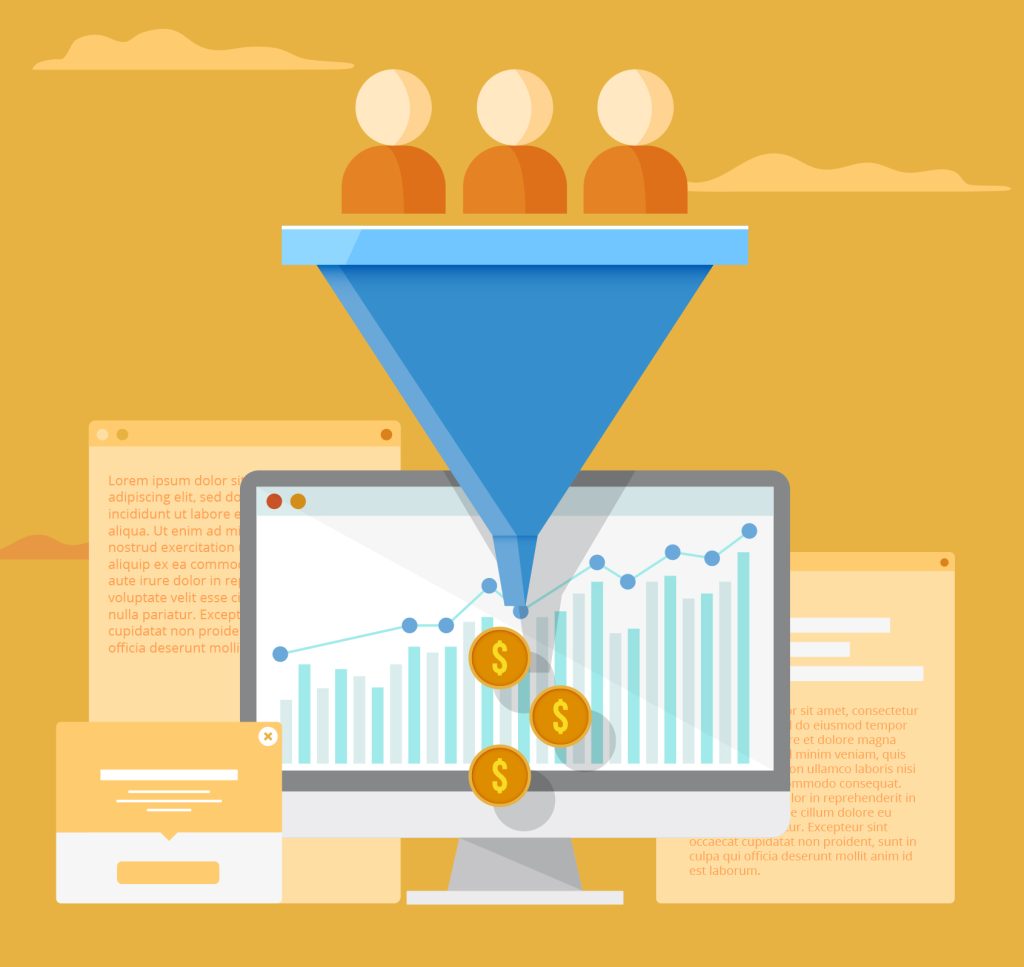For decades, the marketing world has relied on the conversion funnel as a foundational framework. This linear model visualised a customer journey progressing from awareness to consideration, decision, and finally, action (purchase). However, in today’s complex B2B landscape, the traditional funnel falls short.
The modern B2B buyer journey is no longer a neat, one-directional path. Decision-making often involves multiple stakeholders, extensive research across various channels, and a more nuanced relationship-building process. So, it’s time to ditch the funnel and embrace a more comprehensive framework for driving B2B conversions.
Why the Traditional Funnel Fails B2B Marketers:
- Linear vs. Cyclical: The funnel implies a one-time journey. In reality, B2B buyers may revisit stages or even abandon the process entirely.
- Limited Touchpoints: The funnel focuses on a few key interactions. Today’s buyers are bombarded with information across multiple channels (social media, industry publications, online reviews).
- Neglects Relationships: The funnel prioritises pushing prospects through stages. Building trust and fostering long-term relationships are crucial for B2B success.
Introducing the B2B Customer Flywheel: A Model for Continuous Engagement
The B2B customer flywheel is a more dynamic model that emphasises the ongoing cycle of attracting, engaging, and retaining customers. Here’s how it works:
- Attract: Grab attention with valuable content, targeted advertising, and industry thought leadership.
- Engage: Nurture leads through personalised interactions, provide educational resources, and demonstrate expertise.
- Delight: Deliver exceptional customer service, exceed expectations, and foster loyalty.
- Advocate: Empower satisfied customers to become brand advocates through referrals, testimonials, and positive online reviews.
Benefits of the Flywheel Approach:
- Focuses on Customer Lifetime Value: The flywheel prioritises long-term customer relationships that generate recurring revenue.
- Embraces Continuous Improvement: The flywheel encourages constant refinement of marketing and customer service strategies based on data and feedback.
Building Momentum on the Flywheel: Key Strategies for B2B Conversions
Content Marketing with Purpose:
- Create high-quality content (white papers, webinars, industry reports) that addresses B2B buyer challenges and showcases your expertise.
- Tailor content to different stages of the buyer journey (awareness, consideration, decision).
- Optimise your content for search engines and promote it through targeted channels to reach your ideal audience.
Personalisation is Key:
- Leverage data analytics to understand your audience’s needs, interests, and pain points.
- Personalise website content, email campaigns, and social media outreach to resonate with individual B2B buyers.
- Utilise marketing automation tools to streamline personalised communication at scale.
Building Trust Through Thought Leadership:
- Establish your brand as a trusted resource within your industry by sharing valuable insights and thought leadership content.
- Participate in industry conferences, publish articles in relevant publications, and engage in online communities.
- Showcase your expertise through case studies and client testimonials that demonstrate successful B2B solutions.

Prioritise Customer Experience (CX):
- Go beyond the sale by providing exceptional customer service at every touchpoint.
- Offer responsive support, address customer concerns promptly, and exceed their expectations.
- Gather customer feedback regularly and use it to continuously improve your products, services, and overall customer experience.
Empower Your Advocates:
- Identify and nurture satisfied customers who can become brand advocates.
- Develop a referral program to incentivise customer recommendations.
- Encourage positive online reviews and testimonials to build social proof and trust with potential buyers.
Conclusion: Embrace the Flywheel and Thrive in B2B Marketing
The B2B customer journey is no longer a linear path through a funnel. By adopting the flywheel model, you can create a dynamic ecosystem that fosters continuous customer engagement and drives sustainable growth. Focus on attracting qualified leads, providing exceptional value, and building strong relationships throughout the customer lifecycle. This approach will empower your brand to turn satisfied customers into loyal advocates, propelling your business forward on the B2B flywheel.
Ready to transform your B2B marketing strategy and drive results? Our team of experts can help you develop a data-driven approach that attracts, engages, and delights your customers. Contact us today to discuss how we can help you build momentum on the flywheel!

